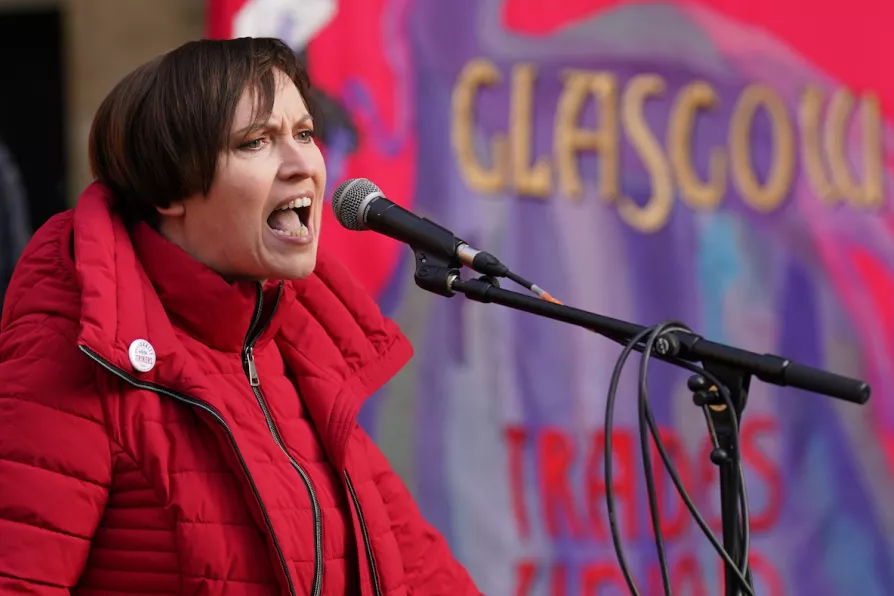As tens of thousands return to the streets for the first national Palestine march of 2026, this movement refuses to be sidelined or silenced, says PETER LEARY

 BATTLE AHEAD: STUC general secretary Roz Foyer speaks during a Protect The Right To Strike rally
BATTLE AHEAD: STUC general secretary Roz Foyer speaks during a Protect The Right To Strike rally
THE Scottish Trades Union Congress takes place next week in Dundee under the slogan “Scotland’s Workers Demanding Better,” and indeed they have been, over the past year, through widespread industrial unrest.
Looking through the agenda, it gets off to a good start with a fiery introduction by our general secretary Roz Foyer.
As she says, the “trade union movement have been at the forefront of fighting for pay and economic justice.” It certainly hasn’t been the Scottish government (even before its recent troubles) or Labour, be it at Scottish or British level.

From Workers’ Memorial Day to May Day rallies, TOM MORRISON examines the real challenges facing the labour movement as Reform UK’s glossy literature exploits legitimate grievances in traditional left strongholds

Congress can chart a bold course that will force meaningful transformation for the people of Scotland












